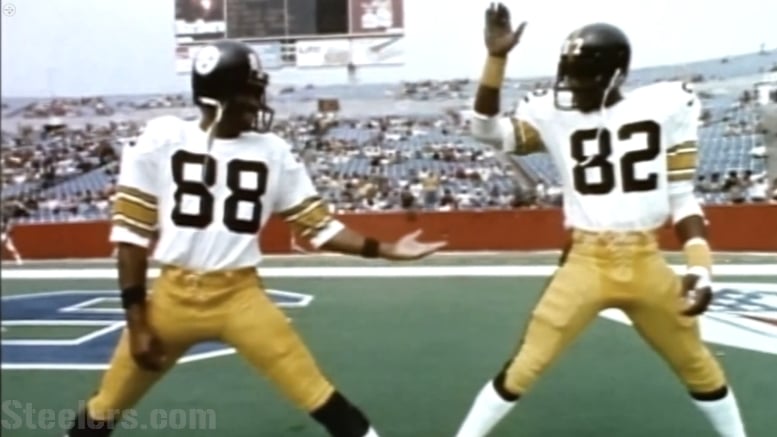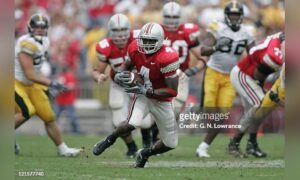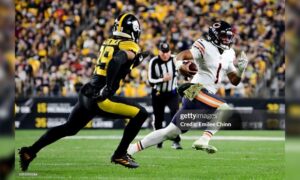As I presented to you yesterday, the correlation between Super Bowl champions and first-team All-Pro performances from running backs is not one that is particularly strong. Out of the 52 Super Bowls that have been played to date, only 11 of them have featured a running back who was a first-team All-Pro in the year that their team won.
And no teams have won the Super Bowl while having a running back who was a first-team All-Pro since the 1999 St. Louis Rams, who also had a first-team All-Pro at both wide receiver and quarterback. But the running back did have tremendous success from 1985 up to that point, even with a lull prior to that and a barren wasteland since then.
The question has arisen because of arguments that have been used against the Pittsburgh Steelers and their attempts to re-sign running back Le’Veon Bell to a long-term extension. Bell, a two-time first-team All-Pro, is looking to become the highest-paid running back in NFL history, or so it seems, and the poor correlation between elite running back performances resulting in actual Super Bowl wins has soured many.
While that argument has been levied against Bell, however, one might be provoked to wonder how that might apply to other positions. I am one such person provoked by that query, which was the germ of the idea for this series of studies. Today, I am looking at the success of first-team All-Pro wide receiver seasons as correlated with Super Bowl championships.
| Year | Super Bowl Champions | 1st-Team All-Pro WR |
|---|---|---|
| 2006 | Colts | Marvin Harrison |
| 1999 | Rams | Isaac Bruce |
| 1994 | 49ers | Jerry Rice |
| 1991 | Redskins | Gary Clark |
| 1989 | 49ers | Jerry Rice |
| 1988 | 49ers | Jerry Rice |
| 1987 | Redskins | Gary Clark |
| 1979 | Steelers | John Stallworth |
| 1978 | Steelers | Lynn Swann |
| 1977 | Cowboys | Drew Pearson |
| 1976 | Raiders | Cliff Branch |
| 1975 | Steelers | Lynn Swann |
| 1973 | Dolphins | Paul Warfield |
| 1972 | Dolphins | Paul Warfield |
| 1968 | Jets | Don Maynard |
The truth is that the wide receiver position does not perform much better as a predictor of Super Bowl successes, in spite of the fact that the wide receiver position more often receives split votes that result in more than two wide receivers making the first-team unit than does the running back position.
Of the 52 Super Bowls played to date, 15 of the victors have featured a first-team All-Pro performance from a wide receiver. While that is over 25 percent, it is also important to take in the broader context of the list. Take a closer look. Sort it.
Only one team since 1999 has won a Super Bowl with a first-team All-Pro running back. Only two have done so with a first-team All-Pro wide receiver. In fact, only two teams in the past 23 years have won the Super Bowl with a first-team All-Pro wide receiver, which is even worse than the running back position.
The most recent team to accomplish the feat was the Indianapolis Colts with Marvin Harrison, who is in the Hall of Fame. The Rams team also had Isaac Bruce in addition to Marshall Faulk and Kurt Warner, all of whom were on the first-team All-Pro list.
You have to go back to 1994 and Jerry Rice to find the next occurrence of a Super Bowl victor doing so with a first-team All-Pro wide receiver performance, and Rice accounts for a total of three of those instances.
While the 1970s was regarded as part the heyday of the running back position, before rules changes late in the decade helped open up the passing game, the numbers show that a first-team All-Pro wide receiver was far more correlated with a Super Bowl victory than was a first-team All-Pro running back.
Seven of the 10 victors in the decade featured a first-team All-Pro, including three of the Steelers’ victories in the decade, twice with Lynn Swann and once with John Stallworth. Larry Csonka’s Miami Dolphins also had Paul Warfield at wide receiver, while in the 1980s Gary Clark was critical for the Washington Redskins.








